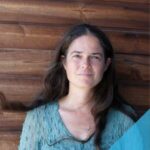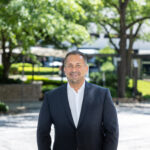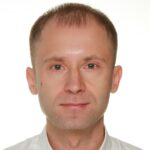Participation remains crucial, but we’re now embracing co-creation, adding a layer of creativity to engage people according to their capacity. It’s about designing inclusive ways for contributions and fostering a sense of ownership and stewardship.
The LED2LEAP project, inspired by the Council of Europe Landscape Convention, explored participatory processes and community engagement. It brought together educators to encourage dialogue on landscape democracy and to challenge traditional educational models. The initiative’s legacy includes innovative Living Labs, transformative student experiences and a significant change in higher institutions towards inclusive, community-focused landscape planning.
Participation means giving trust and space to everybody, listening and creating contexts where we're all equal in learning and developing ideas. It’s about everyone contributing equally, whether they’re students or professors, and valuing each person’s input in a way that leads to co-creation.
The LED2LEAP project, a collaborative effort led by Jeroen de Vries, Deni Ruggeri and Ellen Fetzer, who are interviewed in this story, focused on participatory processes in landscape democracy.
Deni, how did LED2LEAP begin, and what inspired its focus on participatory processes?
I was a professor at the Norwegian University of Life Sciences and keenly interested in participatory processes, community engagement and design. My connection with Ellen Fetzer and Kristin Faurest, who was teaching in Hungary, was quite by chance. We shared similar interests but had never really explored what participation meant to each of us, or the goals that we aimed for through it.
We noticed a lack of educational experiences that would introduce these essential topics, especially in light of the Council of Europe Landscape Convention’s implications in design and planning curricula. This convention raised questions about defining landscapes through people’s perceptions and their interactions with the environment. So, we saw the online space as an ideal setting for discussions around landscape democracy and participation.
This all came together after conference at the Oscarsborg Fortress in the Oslo Fjord, which brought together cultural geographers, landscape architects and others to debate landscape democracy and the rights to the city and landscape in the context of education and participatory practices. It was a chance meeting of minds that wanted to address a gap in landscape education and planning, specifically around the dialogue of why and how we engage in participation and to challenge various models and intentions.
Ellen, could you elaborate on your main influences regarding the innovative approach of LED2LEAP?
The innovation in our approach to landscape education was indeed sparked by the Council of Europe Landscape Convention. We aimed to challenge the traditional, design-centric view of landscape and introduce a modern, constructivist perspective. My journey into the realm of participation was influenced by a colleague who introduced these participatory concepts from the United States to Europe.
My background in digital education across various disciplines also found a new dimension in this project. This was similar to the experience with another project on social innovation that was running concurrently. Both projects – focusing on democracy and social entrepreneurship – were unfolding in parallel with each enriching the other with principles and insights.
Could you share your experience with the design and evolution of the Erasmus Plus project?
Designing the Erasmus+ project was a journey of collaboration and innovation. We brought together diverse expertise, which was perhaps the most innovative aspect initially. When we first suggested Living Labs, we were venturing into unknown territory and aiming to understand and define it through our experiences. The Erasmus+ programme’s focus on education worked to our advantage, as it valued an open, evolving educational process.
In the early stages, we spent considerable time discussing even the details of terms, especially what ‘democracy’ meant within our context. This wasn’t just part of the design; it was the essence of the project. We were dealing with complexities that couldn’t be predefined; they had to emerge from our collaborative process. With each new partner, the dialogue evolved, and this helped us to refine our approach and move forward.
Initially, we didn’t perhaps fully grasp what Action Learning and Action Research entailed. There were various interpretations, but despite this, we reached a consensus that Living Labs are not uniform; each is distinct and reflects the uniqueness of its place, people and landscape.
Now, in the third cycle with the Open Landscape Academy, we’re exploring how to share methodologies on a global scale. We’ve realised that it’s not about uniform methods but about storytelling. We’re crafting a framework to share these stories, which, like in your network, helps us convey the diverse ways people engage with landscape democracy, all underpinned by a common set of values.
Please tell more about the activities and outputs of the project.
In the LED2LEAP project, we partnered with local communities to refine and document a new approach to landscape democracy. We piloted these ideas internationally, combining hands-on student involvement in LED2LEAP Living Labs with staff and student exchanges across three intensive study programmes in Lucca (Italy), Nürtingen (Germany) and Miskolc (Hungary).
We tailored a pedagogy for intensive courses that tackled local landscape challenges, fostering a theoretical and cross-cultural dialogue among participants. Our Reflection in Action report distilled our methods and values, detailing how we integrated community collaboration with education and research.
We also compiled three key reports from our Intensive Study Programmes, which included revitalising the school environment in Miskolc, using games for community building in Nürtingen and repurposing cultural heritage in Lucca.
These efforts, including reports in local languages, showcased our commitment to landscape democracy through participatory learning and action.
Can you share some memorable experiences that students have had during the LED2LEAP project?
In this project, we’ve seen some truly inspiring student experiences. One Hungarian student rediscovered her passion for landscape architecture, realising it’s not just about creating plans but making a societal impact. Her revelation was a highlight for us; it perfectly captured the essence of our project.
Another poignant moment involved a student from Iran participating online due to visa delays. Despite fears of surveillance, he engaged passionately, showing us the real-world implications of landscape democracy. It’s moments like these that highlight the global relevance of our work.
Students have become more vocal about environmental and social injustices and in bringing local issues to a global platform. They’re learning to advocate for their communities, expressing views such as, ‘Don’t cut these trees; don’t destroy my home’. Their awareness and willingness to speak out is significant.
A recurring theme in our discussions is the nature of change. Students now appreciate that change is slow and requires patience. This understanding has fostered a sense of humility and confidence in them, recognising the finer details of their impact on communities.
The cross-cultural dialogues have been invaluable. When students from diverse backgrounds meet in person after collaborating online, the joy is palpable. They bring their ideas to life in a shared physical space, which is incredibly rewarding.
One creative highlight was when students performed to express key concepts like partnership and empowerment. In Hungary, they explored local culture through performance, and in Italy, they made theories of participation come alive. These activities brought theory into the real world, allowing students to physically interpret and understand the principles we teach.
Could you elaborate on the methodological approach of LED2LEAP, particularly how you balanced the design of the deliberate process with the empowerment of participants?
In our methodological approach, we were both designers and inventors of the process. We aimed for a balance between guiding the project and nurturing empowerment and co-design among students and community members.
We didn’t introduce new tools; instead, we placed existing participatory tools into a coherent narrative that explained our goals and inspired transformation. This narrative was flexible, and it allowed for reflection and adaptation based on feedback from pre and post evaluations.
Initially, we set the main subjects, but the process evolved to be more open-ended, allowing us to address issues as they arose. This flexibility was key, especially in the sustainability domain, where there’s a risk of falling into the ‘expert trap’. As architects, we’re trained to view landscapes through a normative lens, but we learned to step back and design truly open processes.
We used game-based approaches to foster open dialogue, a new and unexplored field for us. This approach aligns with sustainability theory, which requires us to leave behind old ways and embrace new forms of engagement.
Could you provide an example of how your institution engaged with local neighbourhoods and communities during the project?
Our university, situated in the small town of Nürtingen, traditionally engaged in projects with a start and end date, often leaving little lasting impact on the local community. However, the project inspired us to transition from a project-based mindset to a landscape-oriented approach, nurturing sustained relationships and shared experiences with diverse local groups.
This evolution has been significant. We’ve moved beyond the borders of academic semesters and short-term student projects to embed ourselves within the fabric of our local neighbourhoods. For instance, we’ve collaborated with neighbourhood groups facing unique local challenges, such as an area that is a typical post-war neighbourhood grappling with shifting identities and a need for social cohesion.
Previously, the local church was the sole social anchor, but as its influence decreased, the community sought new ways to connect. During the pandemic, we adapted by creating online exhibitions of historical neighbourhood photographs, promoting a sense of shared history and identity. This culminated in a neighbourhood festival, where we explored the role of landscape in building social cohesion through game-based approaches and new activities, encouraging residents to see the university not as an isolated entity but as an integral part of their community.
This change required a reevaluation of our academic identity, prioritising community engagement over traditional academic pursuits. It’s a commitment that demands persistence and a willingness to integrate into the community’s rhythm. Our students, often temporary residents, have also become more involved with the ‘local people’, leading to a cultural shift in how the university is perceived and interacts with its surroundings.
Deni, can you elaborate on your experiences of institutional learning?
A key achievement was integrating a dialogue on landscape democracy into our curriculum, fulfilling the Erasmus+ project’s requirements. In Norway, I led a course entitled Urban Landscape as a Social Arena, which organically evolved into a Living Lab. Over three years, this initiative expanded from a course to master’s level projects and even to PhD research focused on participation dimensions.
The longevity of this model in Norway is uncertain since I’ve moved on, but the cross-cultural and institutional changes it stimulated are evident. We’ve witnessed students who started with us at the course level progress to doctoral studies, and become academics themselves. For example, Anna and Andrea, who explored critical play and fieldwork aspects, respectively, exemplify this unexpected yet profound level of change.
Moreover, the integration of the online course and project into the mandatory curriculum signifies a transformation within our academic community. It’s an example of the project’s far-reaching influence, which extends beyond immediate community engagement to shape the academic journeys of our students.
Jeroen, would you like to add examples from the perspective of LE:NOTRE Institute?
Our experience with LED2LEAP has also been transformative, not just for our institution but for our approach to new projects. We’re currently engaged in a sustainable food planning initiative, where we’ve reintroduced the Living Lab concept and applied participatory action learning principles. It’s challenging, but it’s also an example of the adaptability and impact of the Living Lab model.
Incorporating this model into university curricula presents various challenges due to the diverse ways courses are structured. It requires careful consideration and innovative approaches to embed it effectively into our programmes. We’ve found some flexibility in master’s theses and adaptations of landscape planning and design studios, which allows us to integrate the Living Lab concept more seamlessly. A studio is a teaching method where students participate in developing design or planning proposals. They work according to a given brief or one they develop themselves, either individually or in small groups. Supervision includes consultations and intermediate presentations and is provided regularly but flexibly by one or more staff members.
In conclusion, what are some examples of LED2LEAP’s impact on community landscapes?
For example, in Italy, a landscape once considered for demolition became a hub for urban farming and local stewardship, leading to physical improvements and community empowerment.
Another tangible outcome was the establishment of an agroecology district, where community members now see the agricultural landscape as a shared resource, not just a farmer’s business.
Our project also had a material impact on schools and local authorities, leading to improved facilities and increased community visibility. We facilitated a shift in perspective, encouraging communities to value and protect their open spaces through festivals and urban gardening projects.
About the project
Supported by:
Erasmus+
EU Youth Programme Priority:
Participation in Democratic Life
Topic:
Youth Participation / Activism and Decision Making
Youth Participation / Promoting Participation for All
Youth Participation / Skills Development and Volunteering
Youth Goals:
Visibility:
The project’s dissemination followed a flexible plan that adapted to its evolving nature, with partners actively seeking opportunities as they arose. It engaged local communities through labs, reached national educational audiences via webinars and conferences in Germany, Hungary and Italy, and gained international visibility through the European Council of Landscape Architecture Schools and the LE:NOTRE Institute. Over three years, the project involved approximately 210 participants, including students, teachers, NGO staff and local stakeholders, in seminars and intensive study programmes.
Organisations involved:
Lead partner: LE:NOTRE Institute
Partners:
Hochschule für Wirtschaft und Umwelt Nürtingen-Geislingen
Magyar Agrár- és Élettudományi Egyetem
kultúrAktív Egyesület
Eta Beta Cooperativa Sociale
Alma Mater Studiorum – Università di Bologna
Sveriges lantbruksuniversitet
University of Maryland, USA














